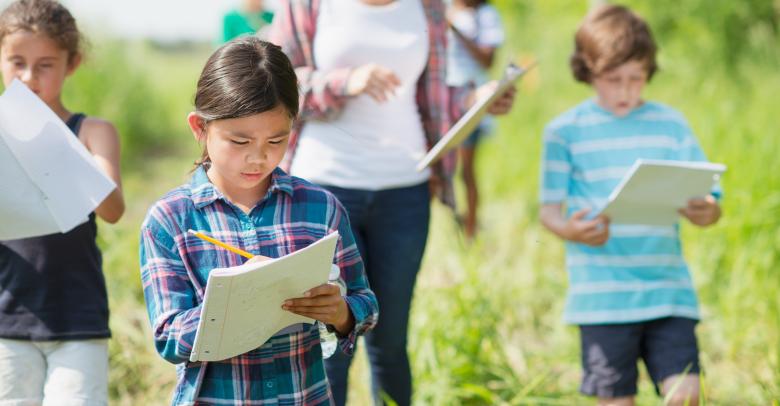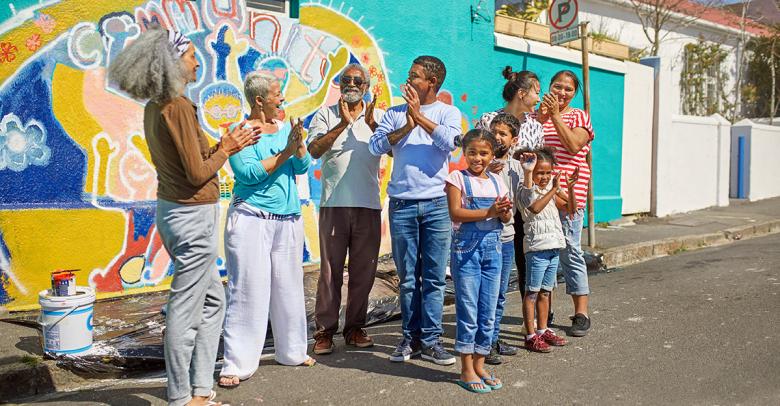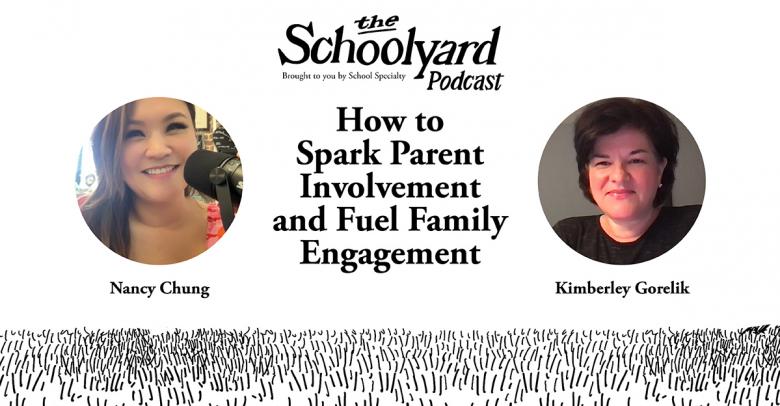Technology seems to be everywhere these days. Although it is a great tool, sometimes we may not have access, or one simply wants their child to have a break from screens for a while. Here are some educational, technology-free activities families can do at home.
Clean out bookshelves at home: Make a pile of books you no longer use. Both kids and adults can help. Then gather the pile and set it aside to take to your local Little Free Library in the future. Or work on a plan together as a family to build a Little Free Library yourself!
Go on a scavenger hunt: Get everyone outside and moving, even if it’s just in the backyard! Create a scavenger hunt list (this can be done on a piece of scrap paper). One family member can create the list alone, so the items are a surprise, or ask the kids for suggestions. The item difficulty can vary based on the child’s age. Kids will need the list and some sort of bag (plastic, paper, or a basket) to put their items collected in. If you would like to make the scavenger hunt more educational, you may want to add a fact about each item on the list, have the kids create a story about their found items, or use items to create an art project.
Cook and bake: Get the kids involved in meal planning and preparation. Depending on their ages, they can assist with reading the recipe, measuring the ingredients, or putting it all together. Encourage children to follow the My Plate food guide. Choose fruits, vegetables, proteins, and calcium to use in your recipes and talk about why healthy eating is important.
Chalk on the sidewalk or driveway: Get colorful and creative! Here’s a list of fun and educational ways to put chalk to pavement.
- Words or phrases of encouragement to share with others who may pass by
- Math problems: For younger kids, write out math problems they can solve. For older kids, challenge them to see how fast they can write out their multiplication tables with answers.
- Spelling words: Pull some words from books your kids enjoy
- Create a mural using their imaginations
- Look up well-known constellations and recreate them on the driveway
- Favorite animals and a message or fact about the animal
- Create a comic strip by drawing out big squares and then fill them in with the comic
- For smaller kids, draw lines that they can walk along to practice balance
Play an instrument together: If you do not have one, use materials around the house to create one. This could be as simple as a bucket drum, singing straws, or tambourines out of paper plates. Kids can put on a concert for you.
Catch questions: Go outside in the yard or a local green space. Throw a frisbee, ball, or bean bag to each other. Ask each other quiz questions with every throw and catch. They could be from a specific topic such as “animals” or “oceans,” or the questions could be chosen by each individual.
Plant a garden: If yard space is available, create a garden in a raised bed or dig a spot in the ground. If a yard is not an option, simply use a large plastic bin and add soil. Allow children to choose what they would like to grow. Talk with your child(ren) about the growing process and what plants need to thrive. Each day they should have the job of watering and weeding.
Get active. If the weather is nice, go for a walk around the block or do jumping jacks in the yard. If the weather is bad, put some music on and have a dance party in the house!
Stretch your brain: For younger kids, create an obstacle course inside. Along the way, give them tasks to perform like reading a story, saying your ABCs, or drawing a picture. For older kids give them the opportunity to be creative and build something such as a skateboard, box car, or fancy paper airplane.
Technology is a great tool in helping keep families and communities connected during this time, but don’t forget to take the occasional break from it. With a little inspiration and ingenuity, you can find plenty of opportunities around the house for technology-free activities.
Maggie Okponobi
Maggie Okponobi has a Bachelor’s degree in Education with a Minor in Early Childhood, Science, and Literacy and a Master’s degree in Business. Maggie holds an Elementary Teaching Certification K-6 for the state of Indiana and has a diverse background of teaching, community service, and serving as a board member to an organization that sponsors student educations. Maggie taught for 2 years before heading overseas. Her love of community service sent her to the West African country of The Gambia where she served for 2.5 years as a United States Peace Corps Volunteer working in the Education sector. Following that, she stayed and taught at the American International school for 2 years as a kindergarten/grade one teacher. Once back with family in the U.S., Maggie worked as a grade one teacher at a charter school. From there, she moved into her current role of running School Specialty’s Grant Assist™ program.
Read more by Maggie Okponobi–>







Leave a Reply